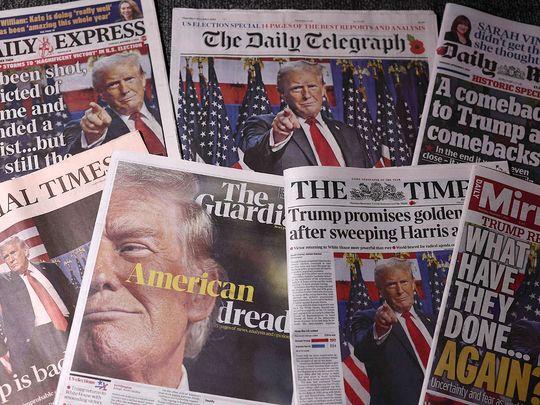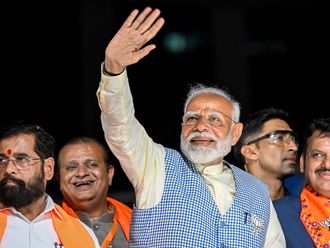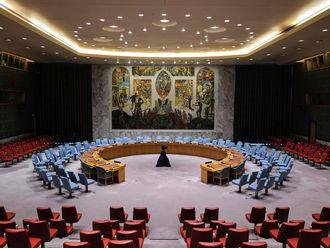
Among the many political, sociological, and cultural shifts signalled by the landslide victory of Donald Trump in the recent US elections, a less observed trend is the startling dip in celebrity power.
Celebrity endorsements certainly took a hit, despite the enduring draw and star power of the likes of Taylor Swift, George Clooney, or Oprah Winfrey. By voting President Trump back with a landslide, American voters sent out a strong message to celebrities: you can sing, act, dance, talk or entertain us otherwise — but do not tell us whom to vote for.
On top of that, if reports of the scandalous amounts of moolah, running into millions of dollars, dished out to Oprah, are to be believed, they have cheesed off Americans even more. Ordinary voters did not like how the Kamala Harris campaign funds were used to pay off friends and supporters in the last days of her losing campaign.
Paying off already rich and well-known starts created a bitter taste in the mouth of those who were struggling to buy groceries. Such extravagance in the face of the economic hardship experienced on a daily basis by millions seem rather hypocritical coming from the Democrats, who were supposed to represent working class America.
Musk backs Trump
Why not spend on grass roots organising, policy development, or direct voter outreach, critics argued. There was considerable public anger of the privilege and elitism of celebrities, who were flown in at huge expense with events staged on lavish sets that cost millions of dollars.
Historically, celebrities have wielded significant influence over American politics. Who can forget Marilyn Monroe’s seductive serenade to John F. Kennedy at the Madison Square Gala just before his 45th birthday? Or to jump sixty years, what about Elon Musk’s public and vocal campaigning for Trump, runs the counter argument. It certainly moved the needle significantly in Trump’s favour?
But one might argue that Musk’s support made such a difference not because of his celebrity status but actual power and impact as the world’s richest man, billionaire tech-entrepreneur and, what is more, his social media platform, “X.”
In other words, Musk represents not celebrity status but the force of Silicon Valley business and innovation. His lining up behind Trump meant a huge move away from the Democratic party of US big business and tech interests. The celebrity appeal of Musk was not the key factor here.
In fact, just the contrary: Musk and his media made information and points of available to the American public counterbalancing the influence and power of mainstream TV networks, so heavily and openly biased in Harris’s favour.
In other words, voter autonomy with access to a nontraditional information sources and social media intervention made a big difference. This shows the empowerment of the ordinary individual and greater autonomy in decision-making rather than celebrity influence. The message was clear: voters felt that their choice should not be dictated by the likes of Taylor Swift, Beyoncé, or Megan Thee Stallion, no matter how much they adore their music.
Moreover, those of us who followed the elections closely saw that the crowds that came to see or listen to celebrities also left after the show or performance. They came for the entertainment, not for the politics. And even the former was often disappointing or inauthentic, lacking the energy or even the authenticity of actual concerts or real and ticketed shows. The two domains were as different as chalk and cheese or oil and water. The mix simply do not mix.
Trump, on the other hand, himself a media start with his participation in beauty pageants, WWF wrestling, and other TV shows was himself a sort of entertainer and performer, despite his repeated nastiness and tactless jibes. Indeed, his rallies were like mass entertainment shows in which became more memorable, even if less likeable.
Several celebrities who endorsed Harris, on the other hand, caused scepticism in the minds of voters. Were they paid endorsers or proponents of a genuine political position?
Creating unforeseen ripples
Instead of mega influencers, what these elections showed is the coming of age of micro influencers on social media. Bloggers, podcasters, and political analysts popped up in the hundreds of thousands, many with their loyal following, creating unforeseen ripples through the political system.
Many could relate much more readily to these rooted, organic, and much more authentic influencers who operated at the local or community level, even if these localities and communities were virtual rather than real. Joe Rogan and Megan Kelly are good examples of the biggest of such alternative media personalities whose backing of Trump was more persuasive
Overexposure, brand dilution, and backlash against elite culture also contributed to the reduction of the psychological hold that celebrities have on the American public. Has the era of celebrities come to an end? Do these trends signify a pivotal shift in the role of the celebrity in American society and culture?
Perhaps, it is too early to draw such a conclusion. But the fact that Trump won big despite so many celebrities lining up behind his opponent, Vice President Harris, does underscore not only a significant waning of celebrity influence on US politics but also a decrease in the role of entertainers in the public sphere.
For sure, the sway and swag of celebrities is on the decline.












